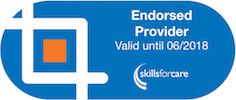- Course Library
- General Health and Safety
- Risk Assessing Level 2 for the Private Security Industry (VTQ)
Course Search
Browse by Topic
- First Aid
- First Aid in the Workplace
- Which FAW Course is right for me?
- CPR / BLS / ILS / ALS / AED
- Paediatric
- General Health and Safety
- Outdoor, Active Pursuits and Sports
- Pets / Animals
- Infection Control
- Marine / Boating Courses
- First Person On Scene/Responder
- Triage and Major Incident Planning and Support
- Scottish SQA Accreditations
- Office Skills
- Moving and Handling
- Risk Assessment
- Fire Safety
- Food Safety
- Health and Social Care
- Martyn's Law and Community Safety
- Care Certificate
- Medications
- Medical Procedures
- Medical Conditions
- Mental Health
- Office 365 and Computer Training
- Construction
- Confined Spaces and Working at Heights
- Transport
- Free and Funded Courses
- Instructor
- citizenAID
- Partner Courses
- Other
- Regulated Qualifications
- International Course Versions
- QNUK Qualifications
- Beauty
- Health and Fitness
- View all online courses
- View all classroom courses
- Gift card bespoke sites
- Security


This comprehensive Risk Assessing Level 2 course, specifically tailored for the private security industry, equips participants with the essential knowledge and skills needed to effectively assess and manage risks within various security environments. Through a blend of theoretical instruction and practical exercises, this course provides a thorough understanding of risk assessment processes, legal requirements, and the implementation of effective risk management strategies.
The content of this and all our courses has been independently certified as conforming to universally accepted Continuous Professional Development (CPD) guidelines and come with a Certified CPD Statement as well as a ProTrainings Certificate and for online courses an Evidence Based Learning statement.
-
Security Officers:
- Frontline security personnel responsible for ensuring the safety and security of premises and people.
-
Security Supervisors:
- Individuals who oversee the activities of security officers and manage security operations on-site.
-
Security Managers:
- Professionals responsible for developing and implementing security policies, procedures, and risk management strategies.
-
Private Investigators:
- Investigators who may need to conduct risk assessments as part of their investigative duties.
-
Loss Prevention Officers:
- Personnel focused on preventing theft and reducing losses in retail and other environments.
-
Event Security Coordinators:
- Individuals managing security for large events, ensuring the safety of attendees and staff.
-
Facility Managers:
- Managers responsible for the overall safety and security of buildings and facilities.
-
Health and Safety Officers:
- Professionals dedicated to maintaining workplace health and safety standards, often involving risk assessments.
-
Corporate Security Professionals:
- Individuals working in corporate environments to protect assets, employees, and information.
-
Emergency Response Coordinators:
- Personnel involved in planning and responding to emergencies, where risk assessment is crucial.
-
Security Consultants:
- Experts providing advice on security measures, risk management, and compliance with regulations.
-
Contract Security Service Providers:
- Individuals and companies offering security services to various clients, requiring knowledge of risk assessments.
-
Law Enforcement Officers:
- Officers who may benefit from understanding risk assessment techniques applicable in various law enforcement scenarios.
-
Construction Site Security Personnel:
- Security officers working on construction sites, where risk assessments are necessary to manage hazards.
-
Airport Security Staff:
- Personnel ensuring the security of airports, where comprehensive risk assessments are essential.
-
Hospital and Healthcare Security Officers:
- Security staff working in healthcare settings to protect patients, staff, and visitors.
-
Educational Institution Security Personnel:
- Security officers working in schools, colleges, and universities to ensure a safe learning environment.
-
Transport Security Officers:
This course comes with 6.0 hours of CPD, although the time to complete the course online may be less than this.
The content of this and all our courses has been independently certified as conforming to universally accepted Continuous Professional Development (CPD) guidelines and come with a Certified CPD Statement as well as a ProTrainings Certificate and for online courses an Evidence Based Learning statement.
Learning Outcomes:
Participants will be able to:
- State the main causes of work-related fatalities, injuries, and ill health.
- Outline the legal requirements for risk assessment.
- Describe the risk assessment process and prioritize risks effectively.
- Identify and implement suitable control measures to manage risks.
- Maintain accurate records and review risk assessments as needed.
What is included in SUMO?
The Single Use Manikin Option (SUMO) is our revolutionary way of completing a fully-compliant blended course (online learning + hands-on skills evaluation) entirely from home. This price includes both the necessary SUMO manikin(s) and a skills evaluation with a certified ProTrainings Instructor via web conference.






